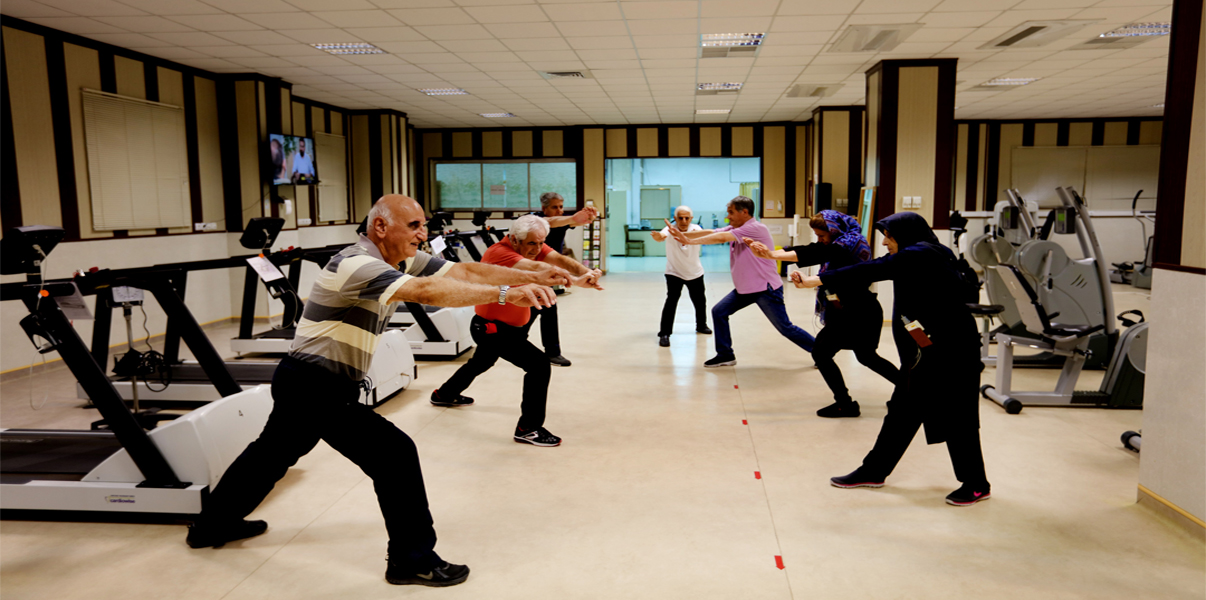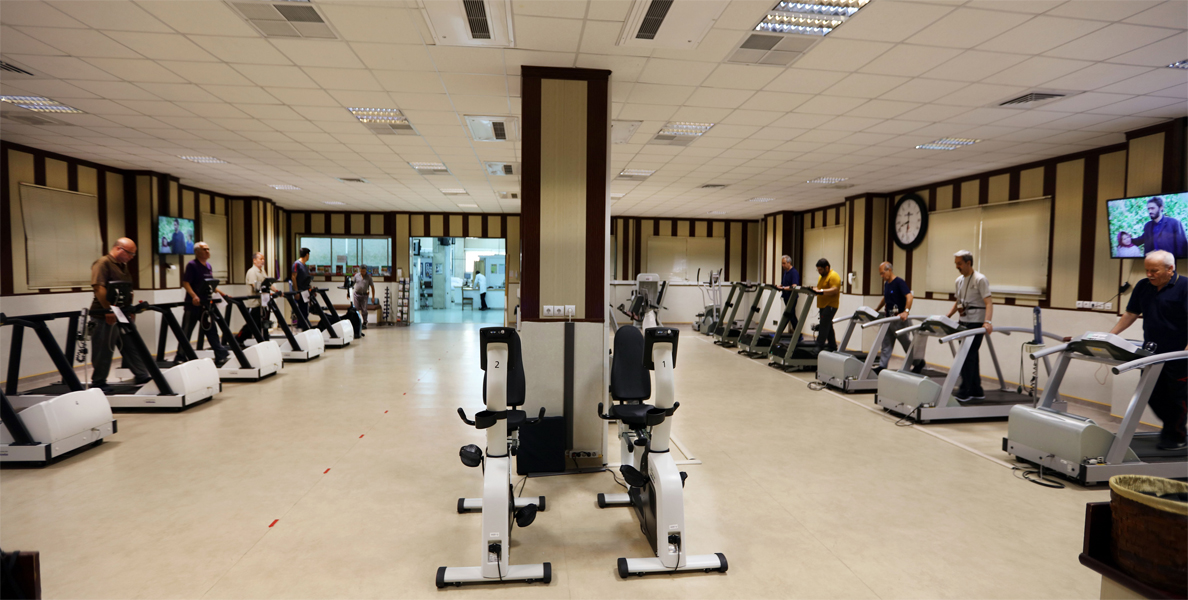Rehabilitation
Cardiac Rehabilitation Department: Lifestyle and Recovery
The cardiac rehabilitation department is one of the most important wards of the center that helps the patients to have a **healthy lifestyle**, including **exercise, improving nutritional habits, reducing emotional stress, etc.** The rehabilitation department occupies spacious rooms with a soothing environment and advanced equipment.

Rehabilitation Phases and Patient Groups
The treatment plan in the cardiac rehabilitation ward includes **Phase I** (inpatient consultancy) and **Phase II** (structured program). The long-term treatment includes **Phase III and IV**, which can be done out of the hospital too.
In Phase I, patients refer for essential consultancy on the last day of admission. Most of the patients have **ischemic heart disease** who have undergone **coronary artery bypass grafting (CABG)** or **percutaneous coronary intervention (PCI)**, or the patients with **heart failure**. The other groups of patients include **heart transplant, valvular disease, and peripheral vascular diseases**.
Phase I Team and Consultancy:
In Phase I, a nurse, a psychologist, and a nutritionist do the initial consultancy to **improve eating habits, learn to control emotional stress, manage depression and anxiety, and start physical activity**. Patients are then referred to the doctor for reevaluating their physical health, doing an exercise test, and planning for exercise at the hospital. Paraclinical tests and evaluations are ordered if necessary.
Another treatment done in the cardiac rehabilitation ward is **EECP**. This is a good option for patients with ischemic heart disease who are not good candidates for CABG or PCI.
EECP contains **35 sessions** and the main aim is stimulating to recruit collateral vessels in the ischemic hearts. Before initiating the treatment, essential evaluations including color Doppler sonography of the lower limbs (to rule out deep venous thrombosis) and abdominal sonography to rule out aortic aneurysm should be done. With this treatment, the symptoms of the patients resolve and remains for **3 to 5 years**, and it can be repeated if needed. The patients with **Pace maker, ICD**, or **irregular rhythms** are **not good candidates** for EECP.

